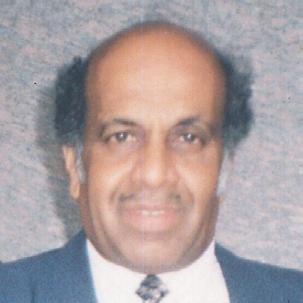
3 minute read
Spoiling India’s name
from 2013-03 Sydney (1)
by Indian Link
the convicted killers of Rajiv Gandhi. The Chief Minister, opposition leaders and other politicians in Tamil Nadu led demonstrations to commute the capital sentences of the perpetrators. Was the Rajiv Gandhi atrocity any less worthy of capital punishment, compared to the Delhi sexual assault?
President Pranab Mukherjee has issued an ordinance at the recommendation of the Indian Cabinet, which provides more stringent penalties, amongst others, for group assaults on women. It encapsulates the recommendations of the Justice Verma Committee. It returns the issues which have been so overplayed in the media, to the principles of legal processes.
Indians spoiling the name of India has seemingly become an art form. No other comparable country soils its own image so well. Political dramatics have been commonplace in Delhi. The first organised giant mela took place in Delhi when demonstrations by adults (and their children) assembled to hear Anna Hazare proclaim himself the prime speaker against corruption. But corruption exists worldwide, including in Australia and the USA. Such corruption led to the Global Financial Crises.
The Anna Hazare campaign was extremely well organised, down to a large number of persons preparing and distributing food. One wonders from where and from whom the money came. Soon after, a similar campaign much of the same crowd, came to see Swami Ramdev, an exponent of yoga, rant against the Congress-led Indian government.
At that time the now famous horrendous incident took place in Delhi – the medical student gang-raped in a bus from which she was allegedly later thrown out. Her horrific injuries led to her death in a Singapore hospital. There were loud and consistent cries for the alleged perpetrators to be awarded capital punishment.
The crowds gathered in Delhi now had a live incident to show the world. But this time the anti-Congress forces were outwitted.
Sonia Gandhi, the Congress President, took up the agitators cause as did Sheila Dixit, the Congress Chief Minister of Delhi. It was now these two ladies who led the agitation.
With this incident, the agitation then moved to women’s safety. India is not the world’s only place where women are bullied.
What about the Australian commission looking into women being sexually bullied in the armed forces? A newly established commission is also investigating sexual crimes in Australian religious institutions. And similar incidents are reported from Ireland, Canada and Britain.
One may get the idea that in India, its people favour harsh judgements and punishment. But it was only months ago that there was an agitation in Tamil Nadu, similar to the Delhi agitation, to pardon
The Delhi agitation against assaulters of women had morphed into a lynch mob. Lawyers refused to defend the accused. Whilst saying that he appreciates the anger of the people, no less than the august personage of the Chief Justice of India Altamas Kabir has warned that such anger must not mean that the legal processes are bypassed.

“People’s reaction has been that do not send the accused to trial. Hand them over to us, we will deal with them or hang them. But let us not get carried away. A swift trial should not be at the cost of a fair trial,” he warned.
There has already been a lynching incident of a high-profile politician, Bikram Singh Brahma by a mob in Assam. He is the Chairman of the Baksa District Congress Committee and the Congress party’s coordinator of the Bodoland Territorial Council.
A political rival accused Brahma of entering his house early one morning and sexually assaulting a woman. The video footage of the lynching has gone viral. He was thankfully handed over to the police as he could not have defended himself when being assaulted.
When slavery was abolished in the USA in the 19th century and thereafter until 1920, an estimated 3,500 Negroes and 1,300 whites were summarily lynched in America’s southern states. In 1891, eleven Italian migrants were lynched in New Orleans. Such horrendous ‘trials’ continued upto 1968! This led to a wholesale fleeing of Negro communities to the north where they now form a substantial part of the population and enjoy a good degree of political power. Negro emancipation was a triumph for President Lincoln. Creditably, the USA sought to protect human rights through legislative measures. The Dyer AntiLynching Bill in 1922 sought ‘To assure to persons within the jurisdiction of every State the equal protection of the laws, and to punish the crime of lynching....’.
It defined ‘mob or riotous assemblage’ as ‘composed of three or more persons acting in concert for the purpose of depriving any person of his life without authority of law’. Dyer was a Republican and his bill was blocked by Democrats who then dominated the southern states.
Ultimately, the USA passed the Fourteenth Amendment which guarantees the right to due legal process whilst the Eighth Amendment prohibits cruel and unusual punishment.
Legal processes should remain paramount as opposed to mob rule.









